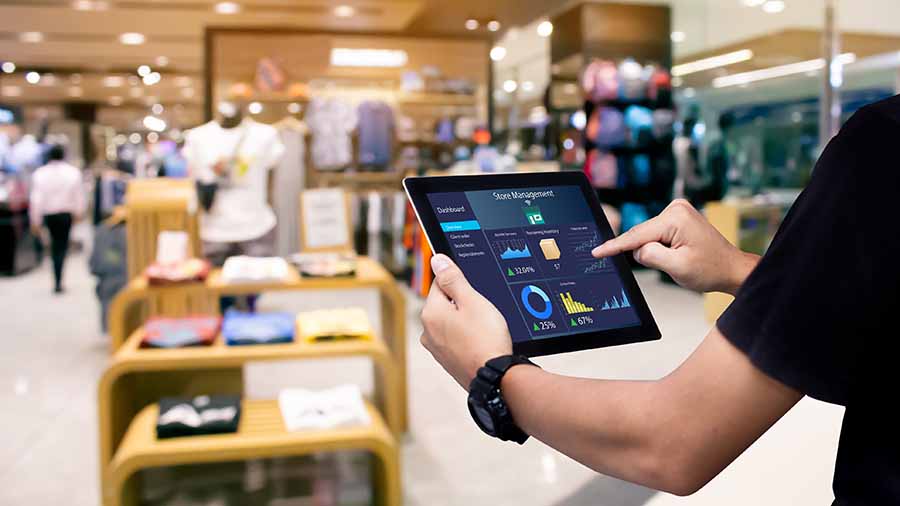Assisting multiple Fortune 500 companies over the past decade has helped us realize that the retail industry stands as a dynamic and fiercely competitive arena where staying ahead requires not just understanding consumer behavior and trends but also mastering the art of attracting and retaining the right talent.
In this context, retail recruitment emerges as a pivotal factor that can significantly influence a retailer’s ability to thrive and adapt in a market that is constantly evolving. The landscape of retail is shaped by rapid technological advancements, shifting consumer preferences, and the global expansion of e-commerce platforms, which collectively raise the stakes for retailers to hire employees who are not just skilled but also versatile and adaptable.
Highlighting the Critical Role of Effective Recruitment in Achieving Retail Success

Effective recruitment in retail is not merely about filling vacancies but about strategically building a workforce that can drive innovation, customer satisfaction, and operational efficiency. The quality of hires directly impacts customer service, sales performance, and ultimately, the bottom line. As retail businesses strive to differentiate themselves in a saturated market, the ability to recruit and retain top talent becomes a key differentiator. This is where the role of sophisticated recruitment strategies comes into play, leveraging the latest technologies to identify, attract, and engage candidates who are the best fit for the organization.
Overview of Recruitment Technology and Its Importance in the Current Industry Scenario
Recruitment technology has revolutionized the way retail businesses approach the hiring process, offering tools and solutions that streamline operations, enhance candidate experience, and improve hiring quality. From Applicant Tracking Systems (ATS) that automate the initial screening of applicants to AI-driven platforms that provide insights into candidate capabilities and fit, recruitment technology is at the forefront of transforming retail recruitment. Its importance cannot be overstated, especially in an industry where the speed and quality of hiring can directly influence market competitiveness and operational success.
II. The Evolution of Retail Recruitment

Overview of Traditional Recruitment Methods in Retail
Historically, retail recruitment heavily relied on traditional methods such as in-store job postings, local newspaper advertisements, and walk-in interviews. These approaches, while effective in their time, were often time-consuming, limited in reach, and largely dependent on the candidate’s initiative to seek out opportunities. The process was manual, with resumes being physically handed in and sifted through by hiring managers, leading to a slower pace of recruitment and potential biases in candidate selection.
Challenges Faced in the Pre-Technology Era of Retail Recruitment
The pre-technology era of retail recruitment presented several challenges, including limited access to a broad talent pool, high time-to-hire, and substantial administrative burdens on HR departments. Moreover, the inability to effectively track and measure the success of recruitment efforts made it difficult for retailers to refine their hiring strategies over time. This lack of precision and efficiency often resulted in mismatches between job roles and hired talent, affecting overall productivity and employee turnover rates.
Transition Towards Digital Recruitment Methods and the Advent of Recruitment Technology
The advent of recruitment technology marked a significant turning point in retail recruitment. Digital platforms and online job portals expanded the reach of job advertisements, further enabling retailers to tap into a wider and more diverse talent pool. Social media and professional networking sites further transformed recruitment by facilitating direct engagement with potential candidates. The introduction of ATS and other recruitment technologies automated many aspects of the hiring process, from candidate screening to interview scheduling, making recruitment more efficient and data-driven. This transition not only addressed the challenges of the past but also opened up new opportunities for innovation and strategic hiring in the retail sector.
The evolution of retail recruitment, driven by advancements in technology, has set the stage for a more strategic, efficient, and effective approach to attracting and retaining the talent necessary for retail success in today’s competitive market.
III. Recruitment Technology Explained
Recruitment technology in the retail sector encompasses a broad range of tools and platforms designed to optimize the hiring process, making it more efficient, effective, and scalable. Key components include Applicant Tracking Systems (ATS), Artificial Intelligence (AI) applications, and comprehensive recruitment software solutions. ATS platforms streamline the application and screening process, AI enhances candidate matching and predictive analysis, and recruitment software offers end-to-end management of the hiring lifecycle. The incorporation of data analytics into these technologies allows for the extraction of actionable insights from recruitment metrics, informing strategic decisions and enabling continuous improvement in retail recruitment practices.
The Importance of Data Analytics in Modern Recruitment Strategies
Data analytics plays a pivotal role in elevating retail recruitment strategies. By harnessing the power of data, retailers can gain deep insights into the effectiveness of their hiring processes, understand candidate behavior, and predict future recruitment needs. Analytics enable the measurement of key performance indicators such as time-to-hire, cost-per-hire, and quality of hire, offering a data-driven approach to refine recruitment tactics, enhance candidate sourcing, and improve overall recruitment outcomes.
IV. Revolutionizing Retail Recruitment with Technology

Improved Candidate Experience
In the competitive landscape of retail, providing a positive candidate experience is paramount. Recruitment technology has transformed this aspect by enabling a seamless and user-friendly application process. Mobile-optimized applications allow candidates to apply for jobs on-the-go, while easy communication channels facilitate timely updates and feedback. Transparent hiring processes, augmented by technology, not only streamline the application experience but also significantly enhance the employer brand, making it easier to attract and retain top talent in the retail sector.
Data-Driven Decision Making
The strategic deployment of analytics in retail recruitment allows for data-driven decision making, significantly enhancing the efficiency and effectiveness of hiring strategies. Through the analysis of recruitment metrics, retailers can identify bottlenecks in their hiring processes, understand the cost implications of various recruitment tactics, and assess the quality of candidates being attracted. This information is crucial in optimizing recruitment strategies, ensuring that resources are allocated effectively, and that the recruitment efforts are aligned with the organization’s goals.
Adaptation to Changing Trends
The retail industry is characterized by its rapid pace and the constant evolution of market trends, consumer behaviors, and technological advancements. Recruitment technology equips retailers with the agility to quickly adapt to these changes, ensuring they can effectively source, screen, and hire talent in a timely manner. Leveraging new tools and strategies, such as social media sourcing, video interviews, and AI-driven candidate assessment, retail recruiters can remain competitive and responsive to the dynamic retail landscape.
Compliance and Diversity
A critical advantage of recruitment technology is its capacity to facilitate compliance with labor laws and regulations, significantly reducing the risk of legal issues. Automated processes for background checks, employment verification, and Equal Employment Opportunity Commission (EEOC) reporting ensure that hiring practices meet legal standards. Furthermore, features like blind resume screening and diversity sourcing tools support the promotion of diversity and inclusion in the workplace, helping retailers build more varied and innovative teams. This focus on compliance and diversity not only safeguards against legal challenges but also enhances the cultural and creative richness within the retail sector.
Recruitment technology has undeniably revolutionized retail recruitment, offering solutions that improve candidate experiences, enable data-driven decisions, foster adaptation to industry changes, and ensure compliance and diversity in hiring. These advancements underscore the importance of leveraging technology in retail recruitment strategies to stay competitive and successful in the evolving retail landscape.
V. Benefits of Recruitment Technology in Retail

Streamlining the Recruitment Process for Efficiency
Recruitment technology significantly streamlines the retail recruitment process, making it more efficient and less time-consuming. Tools such as Applicant Tracking Systems (ATS) automate the screening of applications, quickly identifying candidates that match the job requirements. This automation reduces manual tasks, allowing recruiters to focus on more strategic aspects of their role. Such as candidate engagement and relationship building. The efficiency gained through technology leads to faster hiring cycles. Enabling retailers to quickly fill vacancies and respond to market demands.
Enhancing the Quality of Hires Through Precise Matching
One of the most significant benefits of recruitment technology in retail is its ability to enhance the quality of hires. Advanced algorithms and AI-driven tools assess candidates’ skills, experience, and fit for the company culture more accurately than traditional methods. This precision in matching candidates to job roles not only improves the likelihood of successful hires but also contributes to higher employee satisfaction and retention rates. Which directly impacts the retail business’s success.
Reducing Costs and Improving Operational Efficiency
Adopting recruitment technology can lead to substantial cost savings for retail businesses. By automating various stages of the recruitment process, retailers can reduce the need for extensive administrative support and minimize costs associated with prolonged hiring processes. Additionally, the improved quality of hires and reduced turnover rates contribute to long-term cost efficiencies. Operational efficiency is also enhanced, as recruitment technology provides tools for better candidate management, communication, and onboarding processes, ensuring new hires are productive and integrated into their roles more quickly.
VII. Addressing Challenges and Embracing Opportunities
Discussing Potential Concerns with Recruitment Technology
While recruitment technology offers numerous benefits, it also raises potential concerns, such as depersonalization and privacy issues. The automated nature of some recruitment tools can lead to a less personal experience for candidates, potentially affecting their perception of the retail brand. Privacy concerns are another significant issue, as the collection and analysis of candidate data must be handled with strict adherence to data protection laws and ethical considerations.
Strategies for Balancing Technological Tools with Human Insight
To address these challenges and fully leverage the benefits of recruitment technology in retail, it’s crucial to balance technological tools with human insight. Retailers can implement strategies such as:
Personalizing Communication:
Use technology to automate initial screening processes but ensure personalized communication at key touchpoints in the recruitment journey. Personalized emails, phone calls, and interviews can help maintain a human connection with candidates.
Ensuring Data Privacy and Transparency
Adopt clear policies on data collection, use, and storage, ensuring compliance with privacy laws and regulations. Transparency with candidates about how their data is used can build trust and enhance the candidate experience.
Human Oversight:
While leveraging technology for efficiency, maintain human oversight in the recruitment process to ensure that the technology aligns with the company’s values and culture. Human resources professionals should review automated screening outcomes and make final hiring decisions based on a comprehensive understanding of both the candidate and the role.
Continuous Feedback and Improvement:
Incorporate feedback from candidates and hiring managers to continuously improve the recruitment process. This feedback loop can help identify areas where technology may be overused or underleveraged, allowing for adjustments that enhance both efficiency and candidate experience.
By thoughtfully integrating recruitment technology with human insight and oversight, retailers can overcome potential challenges. Further ensuring their recruitment processes are efficient, effective, and aligned with their brand values. This balanced approach is key to harnessing the full potential of recruitment technology in the retail sector. Further enabling businesses to attract, hire, and retain the top talent necessary for their success.
The Future Landscape of Retail Recruitment
The landscape of retail recruitment is poised for further transformation, driven by the rapid evolution of technology and changing market dynamics. Key trends and emerging technologies such as virtual reality (VR), gamification, and social recruiting are set to redefine how retailers attract and engage potential candidates.
Gamification:
Incorporating game elements into the recruitment process engages candidates in a unique and interactive way. Consequently, gamification can assess candidates’ skills and aptitudes through challenges and tasks that mimic real-life job scenarios, providing insights beyond traditional assessment methods.
Social Recruiting:
Leveraging social media platforms for recruitment purposes continues to grow in importance. It allows retailers to reach a broader audience, engage with potential candidates more informally, and showcase their employer brand in a dynamic, interactive environment.
Predictions for the Evolution of Recruitment Technology in the Retail Sector
Looking to the future, we expect recruitment technology in the retail sector to become more personalized, predictive, and participative. AI and machine learning algorithms will further refine candidate matching processes, making them more accurate and efficient. Additionally, data analytics will play a crucial role in predictive recruitment, forecasting hiring needs based on market trends, and employee turnover rates. The integration of these technologies will enable retailers to stay ahead in the competitive landscape of talent acquisition.
IX. Implementing Recruitment Technology in Retail

Guidelines for Selecting and Adopting the Right Technology Solutions
Assess Your Needs:
Evaluate your current recruitment process to identify gaps and areas for improvement. This assessment will guide you in selecting technology solutions that address your specific needs.
Research and Compare Solutions:
Investigate various recruitment technologies, focusing on features, scalability, integration capabilities, and user reviews. Comparing multiple solutions helps ensure you find the best fit for your retail business.
Consider the Candidate Experience:
Choose technology that enhances the candidate journey, making it seamless, engaging, and reflective of your brand values.
Plan for Integration:
Ensure you can smoothly integrate the selected technology with your existing HR systems and workflows for a cohesive recruitment process.
Best Practices for Training HR Professionals and Recruiters in New Technologies
To ensure HR professionals and recruiters effectively utilize new technologies in the recruitment process, it’s essential to develop comprehensive training programs that cover technical and strategic applications. Providing continuous support and learning opportunities is crucial for adapting to updates and leveraging technology effectively. Additionally, fostering a culture of collaboration and knowledge sharing among team members helps maximize technology benefits and encourages innovation in recruitment practices.
Recruitment technology has reshaped retail recruitment, boosting efficiency and effectiveness. For retailers aiming to attract and retain top talent in a competitive market, adopting new tools is key. Keeping up with these tech advancements improves recruitment and keeps retail businesses competitive. Embracing this tech revolution is essential for retailers to stand out as top employers in the ever-evolving retail industry.
If you’re looking to transform your retail recruitment process and stay ahead in the competitive landscape, exploring the latest recruitment technologies is a step in the right direction. Request a demo today and see how our solutions can revolutionize your recruitment strategy.


